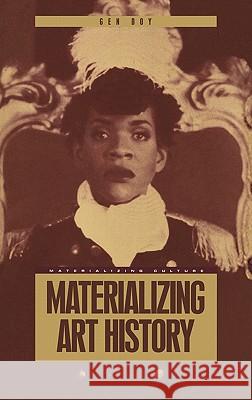Materializing Art History » książka
Materializing Art History
ISBN-13: 9781859739334 / Angielski / Twarda / 1998 / 288 str.
Materializing Art History
ISBN-13: 9781859739334 / Angielski / Twarda / 1998 / 288 str.
(netto: 245,50 VAT: 5%)
Najniższa cena z 30 dni: 247,88
ok. 30 dni roboczych.
Darmowa dostawa!
Quite a number of studies have assessed the value of Marxism to literary criticism, but there has been no recent and systematic study of what Marxism has to offer the social history of art. In situating the various strands of Marxist art history and the social history of art within ideological, political and historical contexts, this book represents a significant contribution to the study of visual culture at a time when old trends in Marxist art history are being reappraised. The author argues that the fragmented and confused state of the social history of art is the result of many radical cultural and art historians' move away from, rejection of, or even ignorance of Marxism, and their espousal of postmodern theories without any adequate method to position themselves in relation to these theories. Further, the reasons for this are ultimately to be found in the material conditions of late twentieth century culture and society, in the political disorientation of liberals and most of the Left, or what Jameson and Mandel describe as late capitalism.Focusing on developments in the visual arts over the last eighty years but drawing extensively on historical precedents, this book demonstrates that Marxism is far subtler than is commonly assumed. The author looks at works which appear 'easy' to understand in Marxist terms, but more importantly, non-figurative works and works by women and black artists which Marxists have generally shied away from tackling. Certain to become standard reading on a number of courses, this book clearly and persuasively demonstrates that Marxism can help the art and cultural historian take a more nuanced approach to visual culture.











